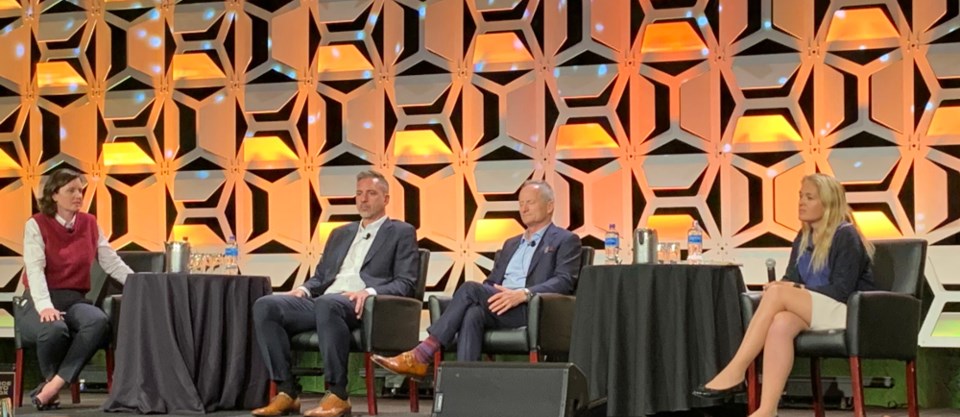Rising interest rates were a key topic at the Western Canada Lodging Conference in Vancouver this week, but concerns is muted by this summer’s strong demand and above-average revenue performance.
With yet another 50-basis point increase today pushing the Bank of Canada’s policy rate to 3.75 percent, hoteliers anticipate a recession in 2023 and are trying to determine the impact a slowdown will have.
“It takes time for rates to impact the economy. I haven’t seen that yet,” said Ed Khediguian, senior vice-president with CWB Franchise Finance during a discussion of transaction activity, which surpassed $1 billion in the nine months of this year. “There’s not going to be a quick retrenching back.”
But he said lenders are taking a closer look at hotel revenues now when considering whether or not to back deals.
“They’re not necessarily concerned about values, the real focus now is on debt-service coverage,” Khediguian said.
With leisure travel roaring back, investor and lender interest in properties catering to that segment of the market is strong and seeing sustain because they can service any debt the owners have.
While the expansion of supply and accommodation capacity will likely slow in the event of a recession, Carrie Russell, senior managing partner of HVS Canada remarked during a panel on the lending environment that room rates will hold steady. This will further support revenues and valuations.
“Hotels are the space you want to be in in an inflationary environment,” she said. “Inflation is going to remain above historical norms for the next couple of years. We’re going to see above normal, up to 3% inflation in rates. … That’s offsetting the increase in interest rates.”
During a panel of industry leaders, Northland Properties Corp. president Rob Pratt noted that the strong growth hotels across the country saw this summer was especially kind to Northland’s Sandman, Sutton Place and other properties.
“We had so much momentum,” he said, noting that gross revenues this year have been 150 per cent of 2019. “It’s substantial, and it’s covered a lot of sins for us.”
While’s coming out of 2022 with a bullish spirit, he suspects domestic travel will taper off during the recession and the group and sport businesses will increase. City-wide conferences will be the last to recover, with surveys by firms such as Deloitte indicating that business travel won’t see a substantial recovery until at least 2024.
The slow recovery of segments other than leisure travel will require hoteliers and developers to be on their toes for the foreseeable future.
“We’ve gone through probably the biggest disruption in the history of our industry. We’ve had a remarkable recovery, but we still face a lot of headwinds,” Brian Leon, CEO of Choice Hotels Canada, said during the ending panel. “One of the things that we’re questioning a little bit is what do you think rates are going to be going forward? The interest rates we’ve seen this year, is that the new normal?”
The good news is that rate growth, driven by leisure travel, has so far kept pace with interest rates and inflationary pressures. While the math is different for long-term capital investments, such as new construction, Leon is generally optimistic.
“When we take a look at where we were in 2019 compared to where we are today, we’ve made up the rates right across the board, system-wide,” he said, noting that revenue per available room (RevPAR) in 2022 is 10 per cent above 2019. “The inflation in our rates is pretty much the same level as the overall rate of inflation.”
Nevertheless, Khediguian said some borrowers are cautious, expecting the current rise in interest rates being short-lived and potentially bearable if room rates and investor interest stays strong.
“A portion of our borrowers are fixing for a shorter time, a couple of years, to see where things land,” he said. “The hospitality space is one [of] living-animal assets, so you might be able to leverage the situation. ... Given the amount of capital that’s in the space chasing assets, values have sustained themselves.”



